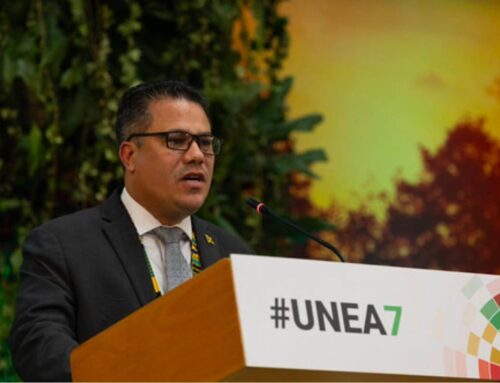Clean energy mandates are driving skyrocketing utility costs, Mass. lawmaker says
April 2, 2025
As Massachusetts Democrats predict price shocks from President Donald Trump’s threatened tariffs on Canadian oil and gas, a Republican state senator has blamed ballooning ratepayer costs on the state’s clean energy mandates.
During a virtual press conference with New England Republican lawmakers and conservative think tanks, Sen. Ryan C. Fattman, R-Worcester/Hampden, proudly noted he voted against the 2021 climate law directing Massachusetts to reach net-zero emissions by 2050.
“We have to build out tremendous new infrastructure that’s going to cost billions of dollars … to transition to alternatives and away from clean-emission energy, like natural gas,” the Sutton lawmaker said during the Tuesday event.
Paul Craney, executive director of the Massachusetts Fiscal Alliance, leaned into April Fools’ Day as he urged ratepayers, “Do not be fooled by what you hear from your State House politicians.”
“The reason why your bills are getting jacked up right now is not because of tariffs, not because of natural gas, not because of who occupies the White House,” Craney said.
“But it’s because of these mandates, these green renewable mandates, these alternative energy mandates, which are driving up costs because we are funding the transition and it will continue to get worse,” Craney continued.
Rising natural gas prices have stung Massachusetts ratepayers in recent winters. Regional grid operator ISO-New England last week reported that the average real-time wholesale electricity price was $126.40 per megawatt-hour in February 2025, up 301% compared to February 2024.
After energy bills soared this winter, Gov. Maura Healey vowed to file a bill to rein in costs. Her administration’s “energy affordability agenda” also outlines strategies to expand discount programs for moderate-income customers, redirect clean energy infrastructure funding, and stabilize local energy supplies.
The governor on Tuesday praised ISO-New England’s first competitive solicitation for transmission investments, which her office said “will address long-standing constraints on the New England power system and integrate new, affordable, onshore wind resources in the coming years.” Healey said the procurement “will unlock affordable electricity for Massachusetts residents and businesses at a critical time.”
Meanwhile, Healey has warned Trump’s plan to impose a 10% tariff on petroleum and natural gas imports from Canada would cost Massachusetts $370 million annually. Trump is expected to announce his tariff plan Wednesday on so-called “Liberation Day.”
“If the Republicans want to lower energy costs – the first thing they should do is oppose Donald Trump’s tariffs on energy from Canada,” state Democratic Party Chairperson Steve Kerrigan said in a statement.
“Donald Trump’s tariffs will raise the costs of gas and oil by 20 cents per gallon and cost Massachusetts ratepayers hundreds of millions of dollars. The Republicans will never oppose these tariffs because the Republican Party is loyal to Donald Trump, not the people of Massachusetts.”
Asked whether he supports Trump’s planned tariffs, Fattman said he’s “not a big fan of tariffs in general.”
The Worcester-area lawmaker stressed he’s focused on state-level climate policies that the Legislature can control.
Fattman also criticized looming state regulations that will require manufacturers to sell lower-emissions engines, based on California’s vehicle emissions standards for medium- and heavy-duty trucks.
“I don’t like tying my future to the state of California, which the commonwealth did,” Fattman said. “Our Legislature did that. They have no ability to change tariffs. They have a big ability to change our standards for vehicles — for advanced clean technology in vehicles and heavy-duty operating.”
In response to Tuesday’s event, the Acadia Center said high natural gas costs this winter stem from the New England region’s “untenable overreliance on fossil fuels, with rising energy burdens driven by natural gas infrastructure, generous utility profits, and the region’s continued fossil fuel investments.”
“Right now, the region has almost all its eggs in the fossil fuel basket, and this offers only the false promise of fool’s gold in protecting the region’s consumers from rising energy bills,” the Acadia Center said. “The region must double down on its climate and clean energy goals to make the broader northeast region energy independent from fossil fuels, reduce consumer price spikes, and mitigate the economic harms of worsening climate change.”
Search
RECENT PRESS RELEASES
Related Post



